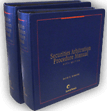Make Direct Communication Mandatory!
That issue should be on the front burner of the FINRA DR Task Force.
Under the Direct Communication Rule [see Customer Arbitration Rule 12211], the parties and the Panel have the ability to communicate directly and not through the FINRA Case Administrator and, in the process, more expeditiously resolve such pre-hearing issues as discovery motions, witness appearance and notice of last minute settlement or the need for an adjournment.
Why should the procedure that is now voluntary and seldom used be made mandatory? There’s a reason why direct communication is the standard operating procedure for American Arbitration Association cases – it provides service to its constituents and gives them a level of comfort that their needs are being addressed and not shuffled within the bureaucratic miasma of the system.
Whenever I’ve chaired cases, I’ve gotten my fellow panelists and the parties to “try it,” acknowledging that they could opt out were the privilege of direct communication to be abused.Sure, it puts more responsibility on the Chair, but the pre-hearing motions that are usually the subject of direct communications will have to be addressed eventually. And if motion practice is directed through the well-meaning Case Administrators, there is a possibility that it could adversely affect the scheduled hearings (i.e., forcing them to be cancelled and re-scheduled).I was talking with a mediator friend of mine this week about my suggestion and he said that the reason why in about 98% of the cases in which I represent parties the Chair either skips over that part of the script or just says “I’m against Direct Communication” without asking the parties about their preference is because they are concerned they will make a procedural mistake. They are often not confident in their powers and are not fully trained in the procedure.
Better to have all communications go through FINRA, they may believe; it’s safer. Again, in almost every arbitration in which I represent parties, the Chair, on his/her own, rejects Direct Communications outright during the IPHC.
I assure you that when Direct Communications works, the parties love it. As do the arbitrators. And if the rule’s guidelines presently in place are strictly enforced, it’s not abused by the parties.In the last case I recently chaired, for example, we had at least five pre-hearing motions that I was able to consider and rule on in advance of the scheduled hearings, which went forward.
At the end of the hearings, when I got to the part in the script that I asked the parties to submit case evaluations to FINRA, they both said they would advise FINRA that they were pleased with Direct Communication.
Lastly, I would suggest that if Mandatory Direct Communication were implemented, when FINRA advises the arbitrator who is appointed the Chair that Direct Communication is now mandatory, FINRA may get some Chairs who say “no thanks” but others who say “bring it on.”
In my law books on securities arbitration and mediation for over 30 years and in my annual New York McKinney’s Practice Commentaries, I’ve always lauded the NASD and now FINRA on its innovative procedures to meet the evolving needs of its constituents.
I truly believe this would be one.


